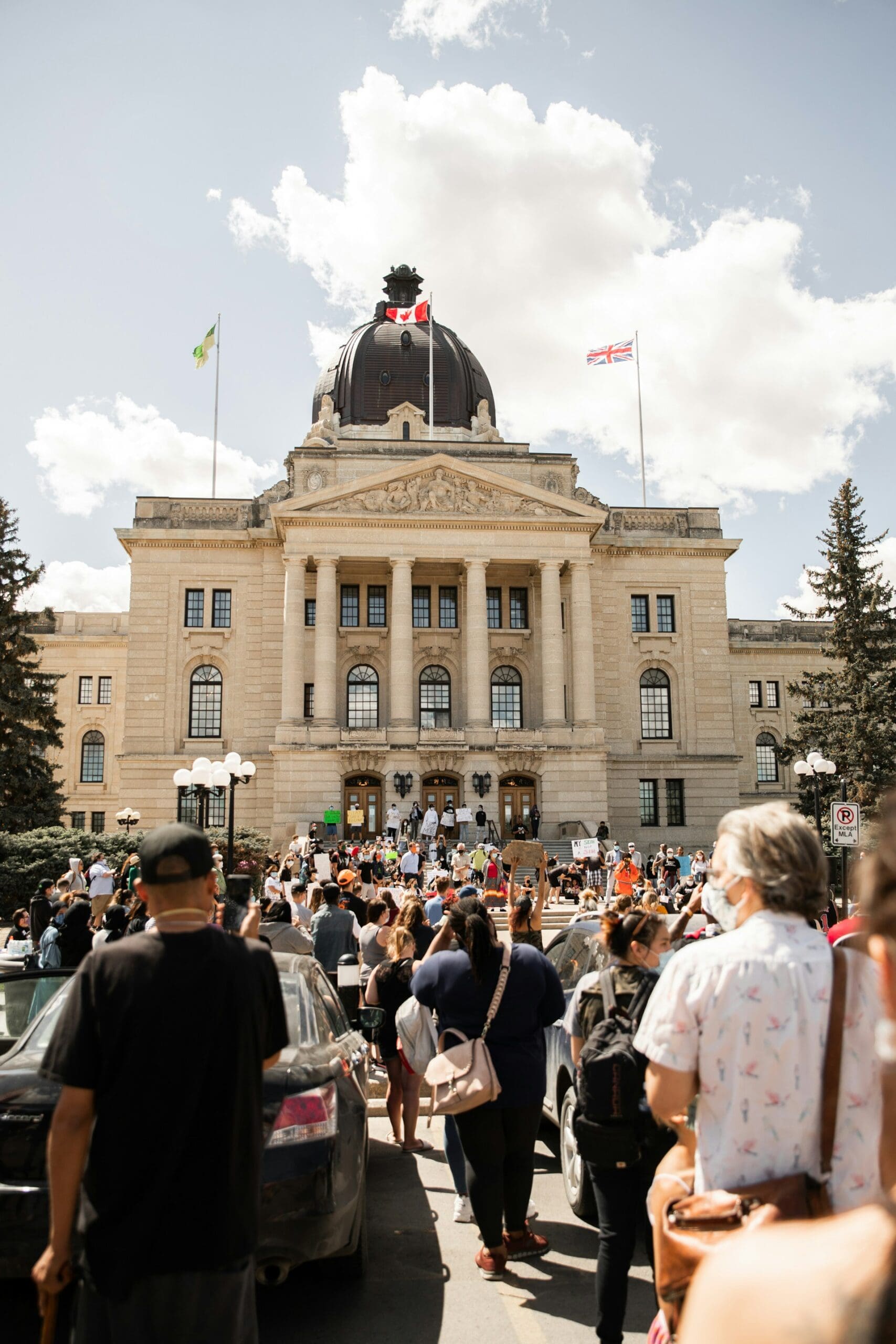By Tom Cooper
Canada stands at a pivotal moment, facing an existential threat that could shape our future for generations.
The spectre of Manifest Destiny — the old idea that the United States is destined to expand its control over North America — has returned in a modern and more dangerous form. A re-elected Donald Trump wasted no time in advancing a belligerent and protectionist agenda that not only threatens our economy, but challenges our very sovereignty.
Tariffs on Canadian goods would deal a devastating blow to workers, businesses and families already struggling with affordability. But Trump’s ambitions go far beyond economic pressure — he has openly suggested the idea of making Canada the 51st state.
This is not driven by any admiration for Canada or its people — it is about control, it is about possessing our land, our industries and our vast natural resources. If we fail to act decisively to strengthen our own economic foundations, we risk being seen as vulnerable — a country that can be absorbed rather than one that stands firm in its independence.
But the reality is not everyone in this country feels they have a stake in Canada’s future. While it has been heartening to see so many resilient Canadians stand up for our country over the last several days, the reality is millions in this country are facing skyrocketing rents, unaffordable groceries and wages that haven’t kept pace with the cost of living. Owning a home has become an untenable goal for many young people.
Perhaps national independence is less of a priority for those who are just trying to survive? If we want to protect Canada’s sovereignty, we must address the deep inequality that pervades our society.
We need to ensure that all Canadians have the economic security to feel like this country is a home worth fighting for, or the same disgruntled forces that brought Trump into office in the U.S. will surely rip apart the fabric of the Canadian dream.
This will require bold policy initiatives. If tariffs do become a reality, one of the most effective measures Canada could take right now is to introduce an emergency basic income guarantee — a regular, unconditional payment that ensures people can afford their basic needs. Canada took this step during the pandemic, and while the Canadian Emergency Relief Benefit (CERB) had its problems, eight million Canadians were able to maintain their housing even while workplaces were shuttered.
In 2020, the overall poverty rate in Canada saw a notable decline, dropping to 6.4 per cent from 10.3 per cent in 2019. This decrease was largely attributed to the introduction of CERB and other emergency benefits, which provided substantial financial support during a period of widespread economic disruption.
In the short term, a basic income would provide stability for those who could be hardest hit by Trump’s tariffs. Trade disruptions could mean job losses in manufacturing, agriculture and other key industries. A basic income would help families stay afloat, giving them the breathing room to adapt — whether by retraining, starting a small business or simply keeping a roof over their heads.
But this isn’t just about responding to a crisis. A basic income is a long-term investment in Canada’s resilience. By ensuring all Canadians have the resources they need to participate in the economy — and in society — we create a stronger, more self-sufficient country. People with stable incomes spend money in their communities, support local businesses and contribute to a healthier economy. A country where fewer people are struggling, one where everybody has a home, is one where everyone benefits.
The idea of Canada becoming the 51st state is absurd. But when economic inequality is as deep as it is today, we can’t assume that everyone feels invested in defending this country’s independence. The truth is, Canada has already been losing ground — not to the United States, but to poverty, precarity and a political system that too often leaves the most vulnerable behind.
A basic income is not just about poverty reduction. It’s about making sure that every Canadian, no matter where they live or what their circumstances are, feels like they have opportunity and a future in this country. If we want people to rally behind Canada in this moment of crisis, we need to make sure they have something to rally for.
We can’t control who sits in the White House, but we can control how we support people here at home. A basic income would be a clear signal that Canada is choosing to invest in its own people, to build a fairer and stronger nation. In the face of economic threats, that’s the kind of leadership we need.




















